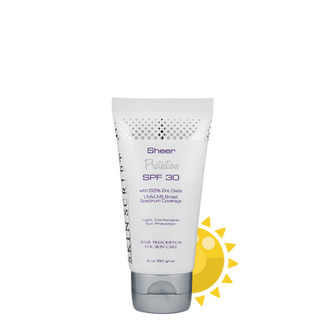The Vital Role of Sun Protection in Skincare: What You Need to Know
Sun protection is a cornerstone of healthy skin care. The sun’s rays, while beneficial in moderation, can cause significant damage if proper precautions aren’t taken. As the awareness of skincare grows, so too does the understanding of the crucial role sun protection plays in maintaining a youthful, radiant complexion. This blog will explore the importance of sun protection, the treatments to avoid in extreme heat, ways to boost hydration holistically, and how to seamlessly integrate SPF into your daily skincare routine.
Why Sun Protection Matters
The sun emits ultraviolet (UV) rays that penetrate the skin, leading to a range of adverse effects. Overexposure to the sun can cause sunburn, premature aging (photoaging), and an increased risk of skin cancer. UV rays break down collagen and elastin, which are essential for maintaining the skin’s firmness and elasticity. This can lead to wrinkles, fine lines, and sagging skin.
Even on cloudy days, up to 80% of UV rays can penetrate the skin, making sun protection a daily necessity. Understanding this highlights the importance of a comprehensive approach to sun protection as a key part of any skincare regimen.

Treatments to Avoid in Extreme Heat without proper skin protection
When the temperature rises, it’s essential to be cautious about certain facial treatments that can exacerbate skin sensitivity and increase the risk of sun damage:
1. Chemical Peels These treatments exfoliate the skin by removing the top layers, making it more vulnerable to sun exposure. In extreme heat, the skin’s natural barrier is already compromised, increasing the likelihood of irritation, hyperpigmentation, and sunburn.
2. Microdermabrasion Similar to chemical peels, microdermabrasion removes the outer layer of skin, leaving it more susceptible to UV damage. High temperatures can further aggravate the skin, leading to redness and discomfort.
3. Laser Treatments Laser resurfacing and other laser-based treatments can increase photosensitivity, making the skin more prone to burning. In hot weather, the risk of adverse reactions is heightened, so it’s best to avoid these treatments during extreme heat.
4. Retinoid Treatments Retinoids are potent ingredients that can increase skin sensitivity to the sun. In hot conditions, they may cause irritation, redness, and peeling, making it advisable to use them with caution or avoid them during the day.
Holistic Ways to Boost Hydration
Hydrated skin is healthy skin, and maintaining moisture levels is particularly important in hot weather. Here are some holistic ways to boost hydration from the inside out:
1. Drink Plenty of Water Hydration starts from within. Drinking at least 8 glasses of water a day helps maintain the skin’s elasticity and suppleness. You can also incorporate hydrating foods like cucumbers, watermelon, and oranges into your diet.
2. Use Hydrating Skincare Products Opt for products that contain hydrating ingredients such as hyaluronic acid, glycerin, and aloe vera. These ingredients attract and retain moisture in the skin, helping to maintain a healthy barrier.
3. Incorporate Omega-3 Fatty Acids Omega-3 fatty acids, found in fish oil, flaxseeds, and walnuts, help to maintain the skin’s lipid barrier, keeping it hydrated and reducing inflammation.
4. Humidify Your Environment Using a humidifier in your home can help maintain moisture levels in your skin, especially in dry, hot climates.
5. Avoid Hot Showers While it might be tempting to take a long, hot shower, this can strip the skin of its natural oils, leading to dryness. Opt for lukewarm showers and apply a moisturizer immediately after to lock in hydration.
Different Forms of Sun Protection
Sun protection isn’t just about slathering on sunscreen. There are multiple ways to shield your skin from the sun’s harmful rays:
1. Physical Sunscreen These sunscreens contain mineral ingredients like zinc oxide or titanium dioxide, which sit on top of the skin and reflect UV rays. They are ideal for sensitive skin and provide immediate protection upon application.
2. Chemical Sunscreen These sunscreens contain organic compounds that absorb UV radiation and dissipate it as heat. They need to be applied 15-20 minutes before sun exposure for maximum effectiveness.
3. Sun-Protective Clothing Wearing clothing with a UPF (Ultraviolet Protection Factor) rating can provide an extra layer of protection. Hats, sunglasses, and long sleeves are essential for minimizing direct exposure to UV rays.
4. Seek Shade Whenever possible, avoid direct sun exposure, especially during peak hours between 10 AM and 4 PM. Seeking shade or using an umbrella can significantly reduce your risk of sun damage.

Incorporating SPF into Your Skincare Routine
Adding SPF into your daily skincare routine is one of the most effective ways to protect your skin. Here’s how to do it seamlessly:
1. Choose the Right SPF For daily use, an SPF of 30 or higher is recommended. If you’re spending extended time outdoors, opt for SPF 50 or above.
2. Layer it Correctly Apply SPF as the last step in your morning skincare routine, after moisturizer but before makeup. Ensure you cover all exposed areas, including your neck, ears, and the back of your hands.
3. Reapply Regularly Sunscreen should be reapplied every two hours, or more frequently if you’re sweating or swimming. Consider using a spray or powder SPF for easy reapplication over makeup throughout the day.
4. Use SPF-Infused Products Many moisturizers, foundations, and lip balms now come with SPF. While these are great for added protection, they should not replace a dedicated sunscreen but rather complement it.
5. Don’t Forget Your Lips The lips are often overlooked but are just as vulnerable to sun damage. Use a lip balm with SPF to protect this sensitive area.

Conclusion
Sun protection is non-negotiable when it comes to maintaining healthy, youthful skin. By understanding the importance of sun protection, avoiding certain treatments in extreme heat, boosting hydration holistically, and incorporating various forms of sun protection into your routine, you can protect your skin from the damaging effects of UV rays. Integrating SPF into your daily regimen is the key to a glowing, resilient complexion that stands the test of time





コメント